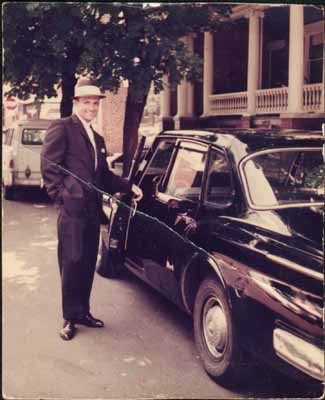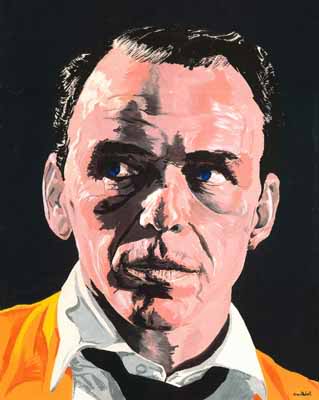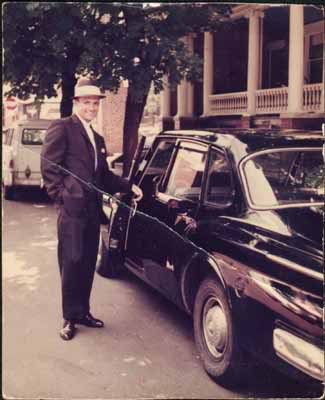
Stephen’s father passed away on Sunday. He’d been in a long, slow decline from Multiple Sclerosis for more than 40 years.
The Friday before, we got a call saying that Don had pneumonia—longtime readers may recall that he’s been in hospice care at home for over a year; back in September he had a stroke and lost the ability to speak. At the time we thought he had days to live, but he pulled through—as he did several other times, including two previous bouts with pneumonia—but true “recovery” was never a possibility. Each time Don fought off an infection, he was left weakened further, and with just a little bit less life in him. By the end he was shrunken and unresponsive; most of the time he didn’t seem to know who Stephen was, or even that he was in the room. After Friday’s phone call, Stephen rushed down as he has so many times in the last sixteen months. We didn’t say it out loud, but both of us wished that this would be the last time, that Don would finally let go. I stayed home in Brooklyn; the last thing Stephen needed was to have to worry about his pregnant wife’s comfort, since he’d be sleeping on a sofa or the floor indefinitely. The next day, though, the hospice workers sent Stephen home to me, saying it likely wouldn’t happen within the next 48 hours. He said goodbye to his father once again, giving him “permission” to die, as the hospice workers had advised us to do. On Sunday morning, Stephen’s older brother Paul woke us with a phone call: it was over.
By the time I came into the picture, the disease had already taken Don’s mobility and the use of his hands, but it hadn’t stolen Don’s ability to charm. When Stephen first took me home to meet him, I sat in the living room while he scooped his father out of bed and into his wheelchair. After just a few minutes, I forgot about Don’s condition, so taken was I with the obvious affection between father and son. They talked about old movies—a passion they shared—and the music of Don’s heyday in the early 1960s, when his talent as an artist earned him entrée backstage at Philadelphia’s original Latin Club and the 500 Club in Atlantic City. Don would show the manager a sketch or a painting he’d done of his hero Frank Sinatra, or Dean Martin or Judy Garland or Ella Fitzgerald or any number of other performers, and the guy would be so impressed he’d arrange an introduction. Even though Stephen knew all the stories by heart—and had even made a documentary about his father’s Sinatra devotion, called In Person, which has been shown in New York and used in college sociology courses—sitting there that day he prompted his father to tell them again, for my benefit. Seeing all the framed artwork on the walls, of Don’s home as well as Stephen’s (and now ours), made MS seem just that much more cruel.

About nine months ago—during the summer, I think, though the chronology has become blurry for me—the disease robbed Don of the ability to swallow, and he was forbidden to eat solid food, or even drink liquids. All nourishment went through a feeding tube that had been surgically installed in his stomach months earlier. As you might imagine, for me this was a particularly upsetting development. Don loved food (he introduced Stephen to Philadelphia German Butter Cake), loved Chock Full o’Nuts coffee, and when we’d go down to visit he’d wax nostalgic about great meals of his past, until the stroke robbed him of the ability to communicate with anything more than a blink. When those two things happened—when Don lost the last two joys of his life, food and reminiscing—that was when I really began to hope it would end soon, and without pain. It took much longer than any of us expected, but when it finally happened, it happened peacefully. Don died in his sleep.

The funeral was Thursday, and it was as personal and joyful as a funeral can be. A letter Don wrote some years ago, with messages for his loved ones, was read aloud by an old friend—after all, Don had decades to prepare for his own death. Paul’s 12-year-old daughter read a poem she wrote for her grandfather, and the church was decorated with Don’s artwork. Paul and Stephen tucked a few of Don’s favorite things into the casket with him: an Entenmann’s Danish, a Hershey bar with almonds, a can of Chock Full o’Nuts, pictures of Paul’s kids, and an ultrasound of our forthcoming baby, who’ll never know his or her grandfather in person. We’re lucky, though—when the baby’s older, we’ll watch In Person together, and Stephen will tell all the stories again.

An obituary we wrote for the local paper appears here, on Paul’s blog.
